Despite a modern commercial landscape dominated by men in leadership roles, history reminds us women have always been integral to cannabis culture. Long before there was a legal industry, women employed the plant in medicinal remedies and cultivated hemp to support the nascent economy of a new nation. More recently, activists like Mary Jane “Brownie Mary” Rathbun, Debbie Goldsberry, and Valerie Corral risked their liberty to deliver relief to patients in need, and advocates including Madeline Martinez, Amanda Reiman, and Paige Figi brought attention to a cause worth fighting for. Embracing this legacy, women today are pioneering new products, new processes, and new business models as they define an executive style marked by compassion, authenticity, and a deep respect for the plant’s heritage.
The dynamics of leadership influence operational ethos in both overt and subtle ways. A patriarchal approach often emphasizes control and hierarchy, while leadership styles traditionally associated with women foster empathy and collaboration. Ironically, these very principles historically have sidelined women in most workplaces. Yet, it is through these strengths that female cannabis executives are making significant strides in dismantling traditional barriers, advocating for a model that is inherently suited to an industry rooted in community and holistic wellness.
Since women began entering the traditional workforce in large numbers during the 1930s, their journey has been about navigating and adapting to patriarchal structures. In the twenty-first century, female leaders are redefining this narrative, proving diversity in leadership brings invaluable perspectives and solutions to the table. Yet in 2023, only 39 percent of cannabis executives were women—and that figure, according to a study MJBiz has conducted annually since 2015, represented a high-water mark.
As we pivot toward a future ripe with potential, it’s essential to reflect on the industry’s roots and the diverse hands that have nurtured them. The narrative isn’t about exacerbating division but rather celebrating the mosaic of experiences and insights that women bring to the forefront. The aim is to inspire a collective movement toward a more inclusive, equitable, and innovative industry.
As the industry continues to evolve in response to legalization and societal shifts, spotlighting the role of pioneering women provides a testament to our collective dynamic and a roadmap for an inclusive future. Elevating women’s voices and visions, their dedication, creativity, and resilience, illustrates diversity in thought and leadership is essential for the industry to thrive.
Here, we spotlight seventeen women who founded and/or occupy the top executive spot in their organizations. These ladies are leading the industry forward, each in her own inimitable way.
Carole McCormick
President, Greenbax Marketplace
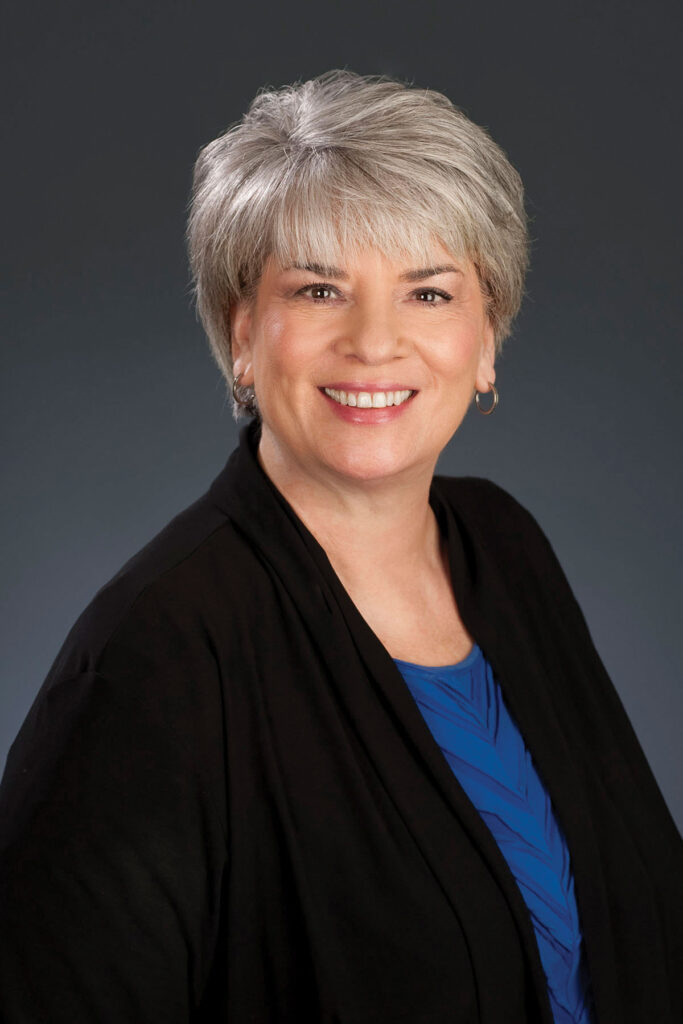
While the industry as a whole may be dominated by men, its subsectors enjoy a little more nuance. Banking, for example, traditionally has operated as a female-forward space. Carole McCormick’s impact lives in the cannabis banking realm, where she formed her first group of “cannachicks” in 2017. “When we launched, every employee in Greenbax’s cannabis group was female,” she said. “Now we have our ‘cannadudes’ to complement us, and my focus is on making sure we’re always hiring the best, regardless of gender.” McCormick is dedicated to ensuring her team works together harmoniously. One such effort includes “strength training”: an exercise that helps her team explore their strengths, weaknesses, and preferred methods of learning and communicating. “These kinds of things really help males and females understand how to work together and be successful,” McCormick said. “It doesn’t come naturally or easily, but it can be achieved if you’re willing to put in the effort.”
Lauren Carpenter
Co-founder and CEO, Embarc
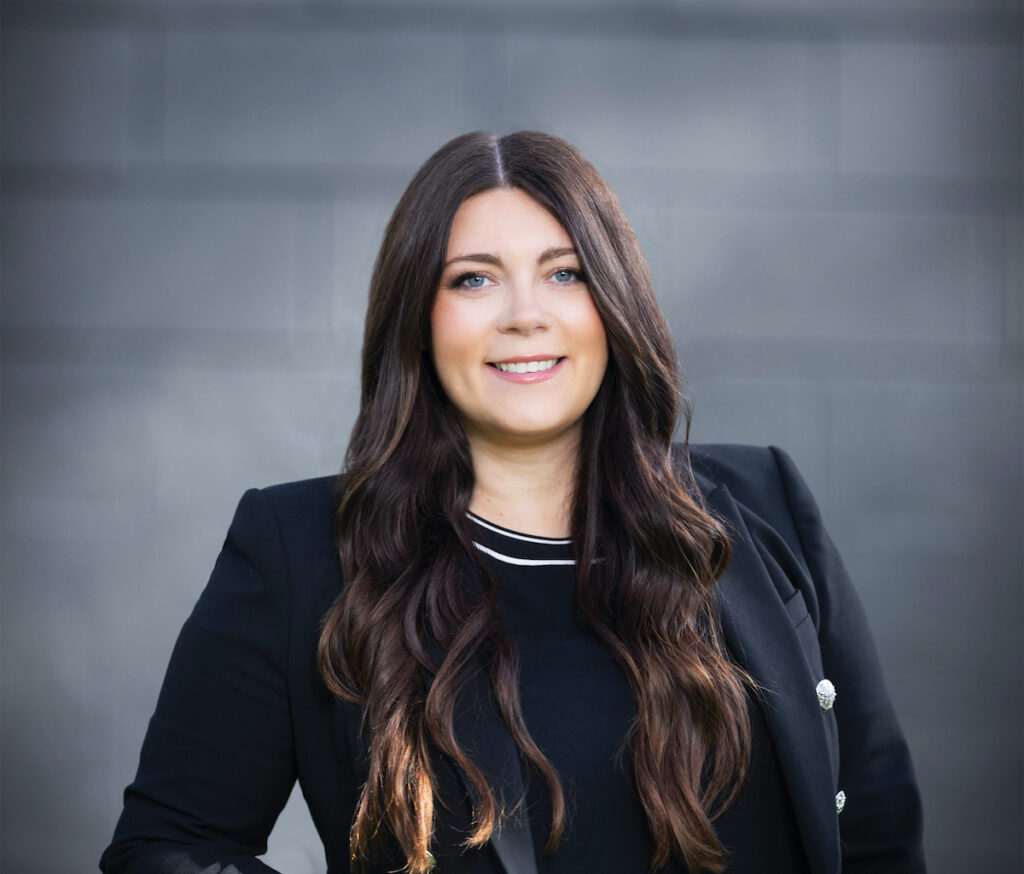
Lauren Carpenter entered cannabis from public service and government affairs, hoping to act as a bridge between a budding industry and the often-puzzling political-regulatory sphere. As a young, female chief executive, Carpenter looks for opportunities to pay her good fortune forward and facilitate similar opportunities for other women to lead. “I’m often the tip of the spear for our company and in our efforts to destigmatize cannabis within communities,” she said. “It makes me acutely aware of the preconceived notions people have about young female chief executive officers, as well as misconceptions and biases about women and cannabis consumption. There is still so much judgment rooted in stigma, and it can be exhausting to constantly combat. I work harder to earn the respect of those who question how I got here, but I have never shied away from a challenge.”
Brett Heyman
Founder and creative director, Edie Parker

Brett Heyman shook up the luxury fashion world when she decided to move Edie Parker into cannabis in 2019. At the time, the legal industry didn’t seem to be speaking to women effectively—a glaring oversight Heyman was inspired to change. “It felt like no one had ever considered that a woman might walk through a dispensary door,” Heyman said. “There was very little shelf appeal; all the brands were either minimalist-medicinal or old-timey apothecary style. Coming from luxury fashion, I like things that feel colorful, enticing, and celebratory, and I think that was missing. I wanted to give women permission to just get high and have a great time. [Plant medicine] doesn’t have to always be for menstrual or anxiety relief; sometimes women just want to get high and have sex and watch the Housewives. The products weren’t giving women that permission, so we needed to change that.”
Mary Bailey
Co-founder and managing director, Last Prisoner Project
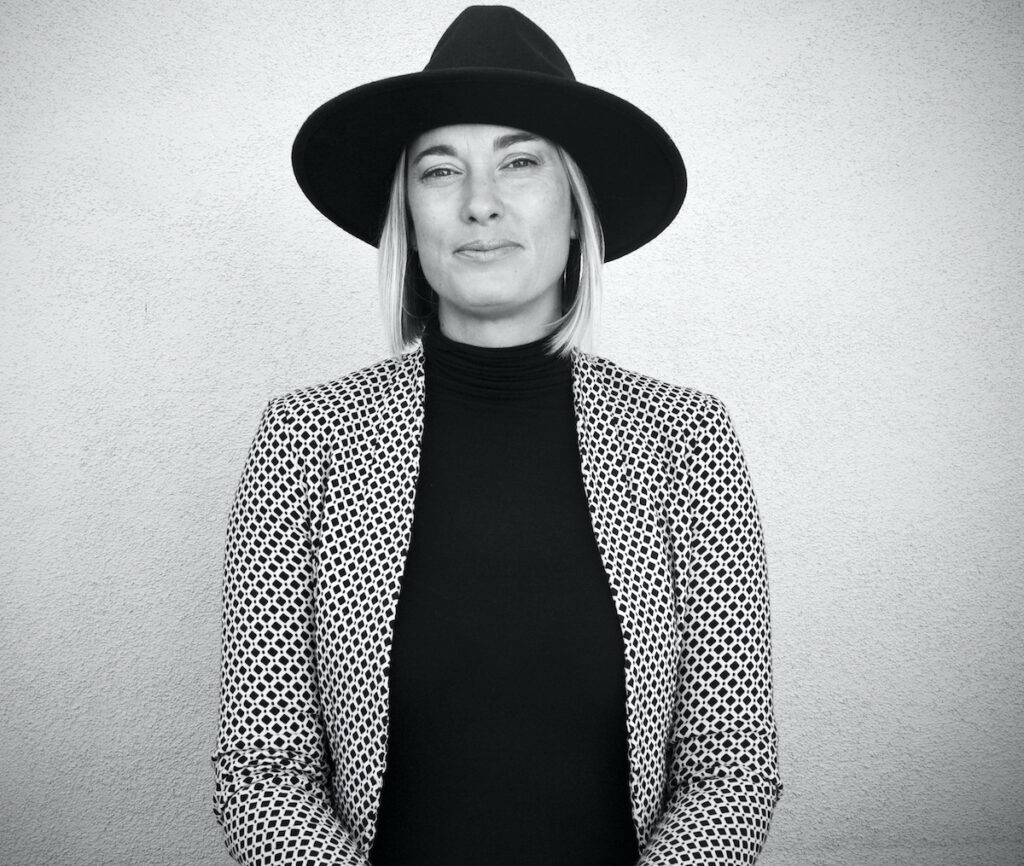
From legacy to legal, Mary Bailey’s roots in the industry run deep, and her early exposure to the pre-licensing market informs her work in criminal justice reform today. Bailey has faced inappropriate remarks and misogyny, but they didn’t stop her from advocating for greater inclusivity and equality within the industry. In fact, sexism merely helped convince her advocacy was her calling. “There’s a clear need for greater diversity and equality at the upper echelons of leadership in the cannabis industry,” she said. “We need to see more women taking on prominent roles within the industry’s leading companies. Women entrepreneurs often face significant challenges in raising capital for their projects, which further highlights the importance of creating more inclusive opportunities and support systems to empower their success.”
Sarah Lee Gossett Parrish, Esq.
President and CEO, Sarah Lee Gossett Parrish PLLC
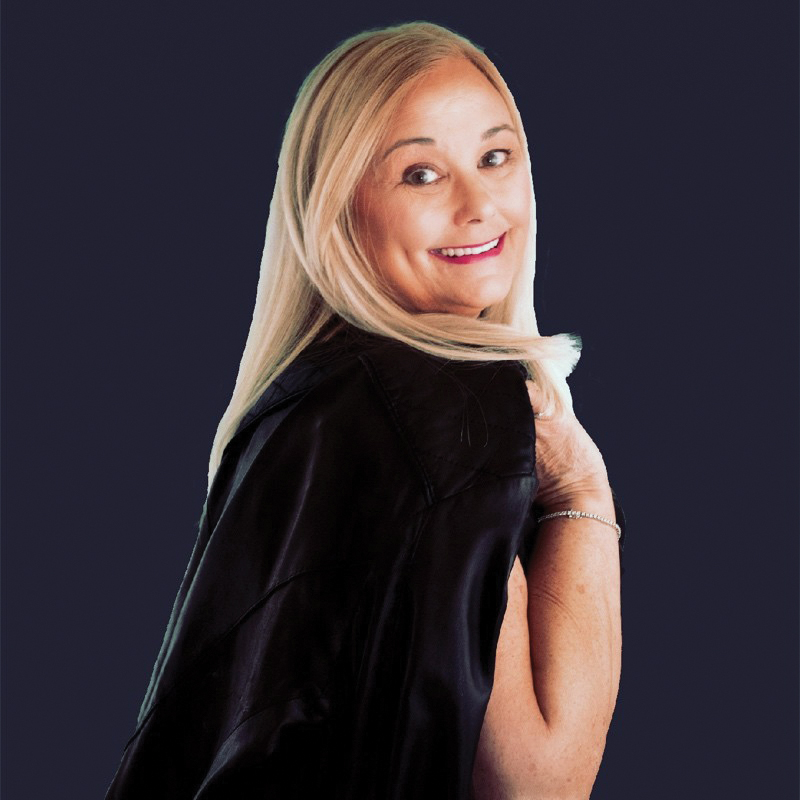
Third-generation Oklahoma attorney Sarah Lee Gossett Parrish has been active in the women’s movement for decades, and she continues to fight for gender equality in the sector she’s embraced in the legal space. Her firm was voted Oklahoma’s top cannabis legal business two years in a row, and she serves as vice-chair of the American Bar Association’s Cannabis Policy Committee. “My success has been a gift from God,” she said. But, clearly, she is a woman of substance as well as faith. “I’ve always been a champion of women’s rights,” she said. “There’s still a good ol’ boys network in Oklahoma; however, I didn’t see it as much when I got into cannabis, because the guys weren’t interested. I think they were all scared. But I have this instinctive mama-bear mentality—for my daughter, my friends, and my clients. I make myself more available to them than most lawyers, and I think they recognize that.”
Christine Smith
Founder and CEO, Grön
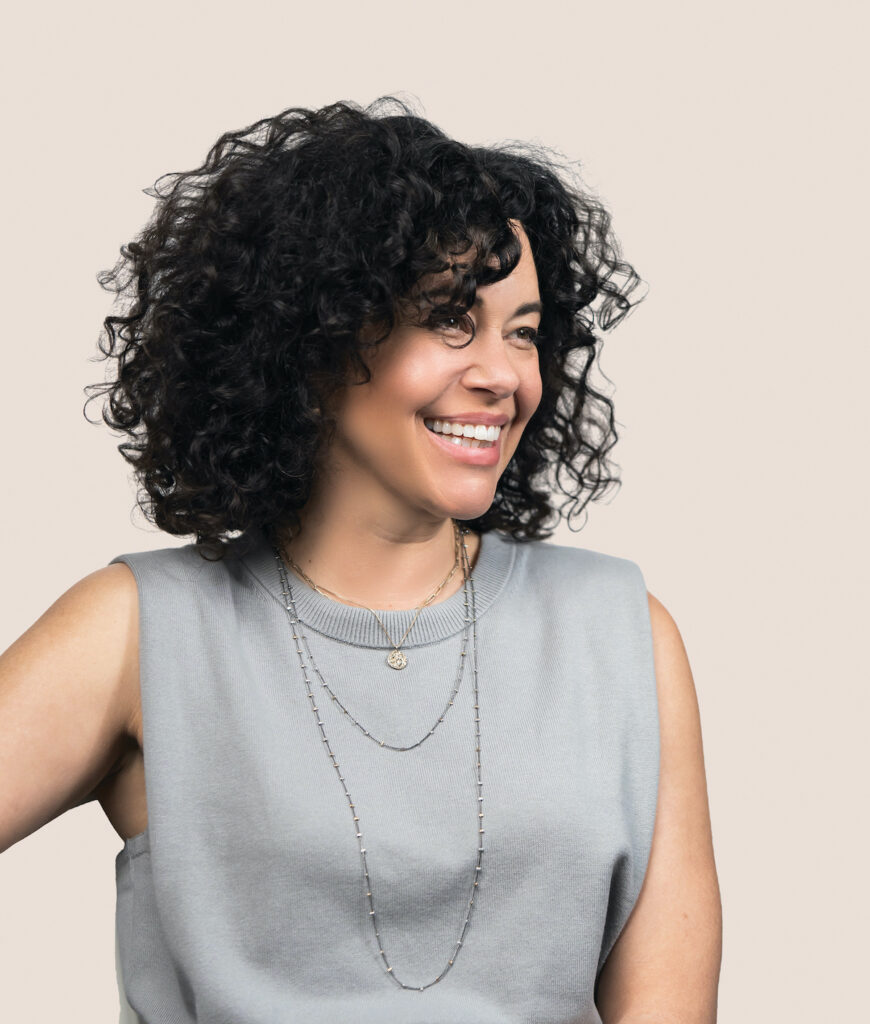
As a “recovering architect,” Christine Smith fell into the industry while pursuing more creativity than she found in traditional design and development environments. She said she has found cannabis to be “incredibly freeing” compared to the low glass ceiling in mainstream real estate development. “I’ve approached my organization in the same way I raise my children,” she said. “I feel like I’m the mother to my company and my people, and I often come at the products we bring to market in that same nurturing, mothering way. I want everyone who tries our products to feel the love and genuine care behind them. My leadership style is also very communal-based. Rather than top-down, my team moves as a group. Everyone has buy-in. It’s a very female way of leading, and sometimes men come in and expect a different pace. However, I’ve yet to find a man who didn’t fully embrace our approach once he sees how well it can go.”
Wanda James
Founder and CEO, Simply Pure

As one of the longest-serving chief executives in the industry, Wanda James maintains her goal has always been to advocate for racial and gender equality. “Women have been supporting the industry’s organic growth for decades,” she said. “Back when it was only medical, women were the ones pushing for adult-use legalization: Charlotte Figi’s mom, women with autistic children, women taking care of their dying parents, women fighting breast cancer. That’s what I found when I joined the industry in 2009—this plethora of phenomenal women talking about how to keep our families healthy.” While James is saddened that today’s young women still have to fight for equality, she remains optimistic about the future, primarily because of the way women choose to collaborate and uplift one another. “You don’t have to lose for me to win,” she said. “Women win together. Yes, I’m the boss, but I hired this brilliant woman to lead my marketing efforts. I want to empower her. I want her to do her and show us what’s what. Women lead in a very different, much-needed way.”
Lauren Fontein
Founder and chief compliance officer, The Artist Tree
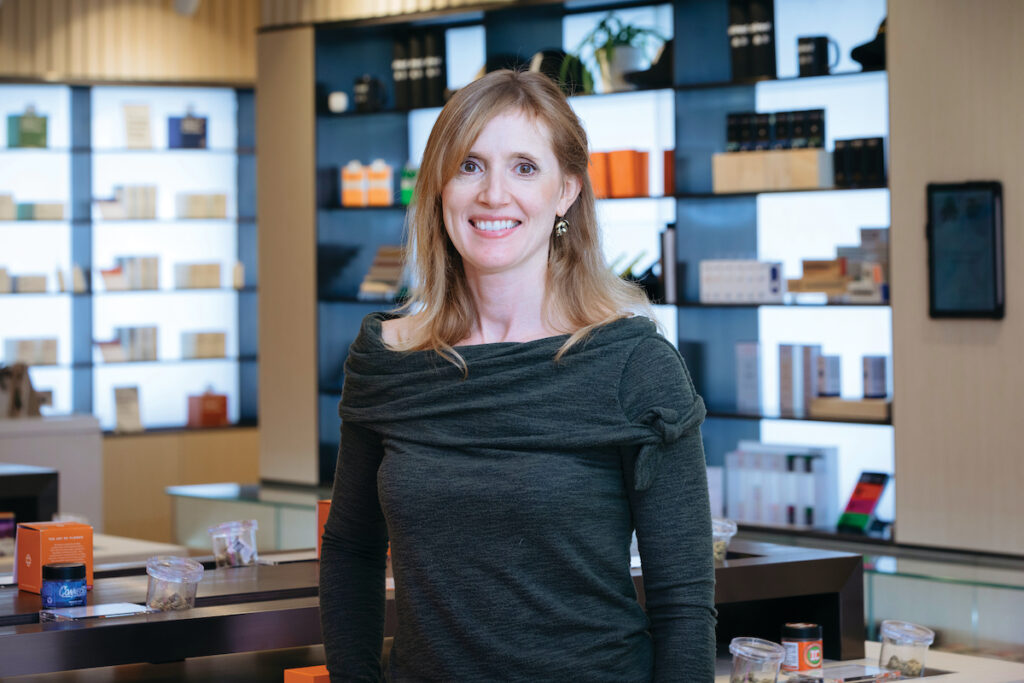
Lauren Fontein has been in the industry since 2009, when the typical dispensary was owned by men and staffed by female budtenders. “You weren’t always treated with professionalism as a female coming into the space, and it’s still like that today with upper-level corporate positions largely filled by men,” Fontein said. That’s why Fontein the employer is dedicated to providing opportunities for women to advance. Both she and The Artist Tree’s staff appreciate the voice surveys and focus groups that help Fontein understand the wants and needs of female team members. “Women are more likely to be open to different types of ideas—to really listen and communicate with their team at every level,” she said. “Women owners will go into their stores and know their employees and managers by name. I think it’s important for our leaders to be part of the community, and having women at the helm seems to push that forward more.”
Dawne Morris
Co-founder and CEO, Proteus Business Solutions
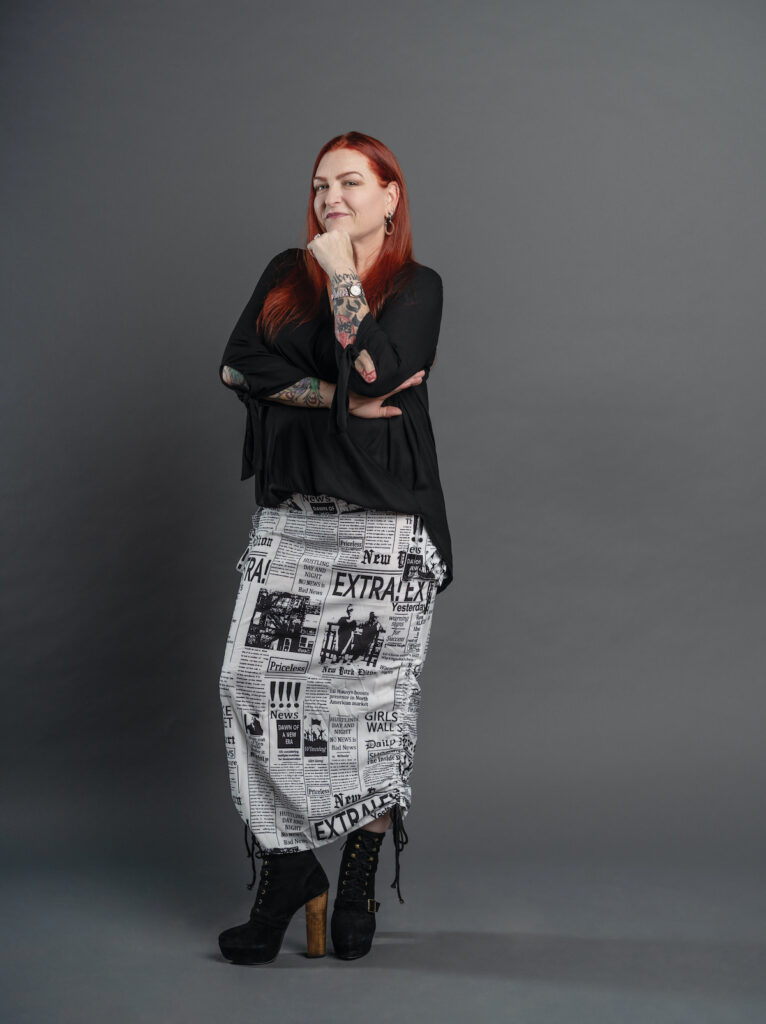
Philadelphia native Dawne Morris co-founded Proteus Business Solutions alongside her husband. Together, they operate as yin and yang: a marriage of logic and heart that informs balanced success. “He’s the money guy,” she said. “He thinks about the dollar and how it will affect customers and employees alike. Meanwhile, I’m the driver of heart. I can tell you all of my customers’ names and where they’re located. I pick up my phone on a daily basis to check in, because I have to be on the ground floor with them, and my heart has to be 100 percent in the process.” Morris’s top tip for women in the industry is to tap into their metaphorical heart. “Educate yourself about your heart,” she said. “What’s your ‘why?’ Once you understand that, you’ll know what your purpose in the space is.”
Kim Stuck
Founder and CEO, Allay Consulting
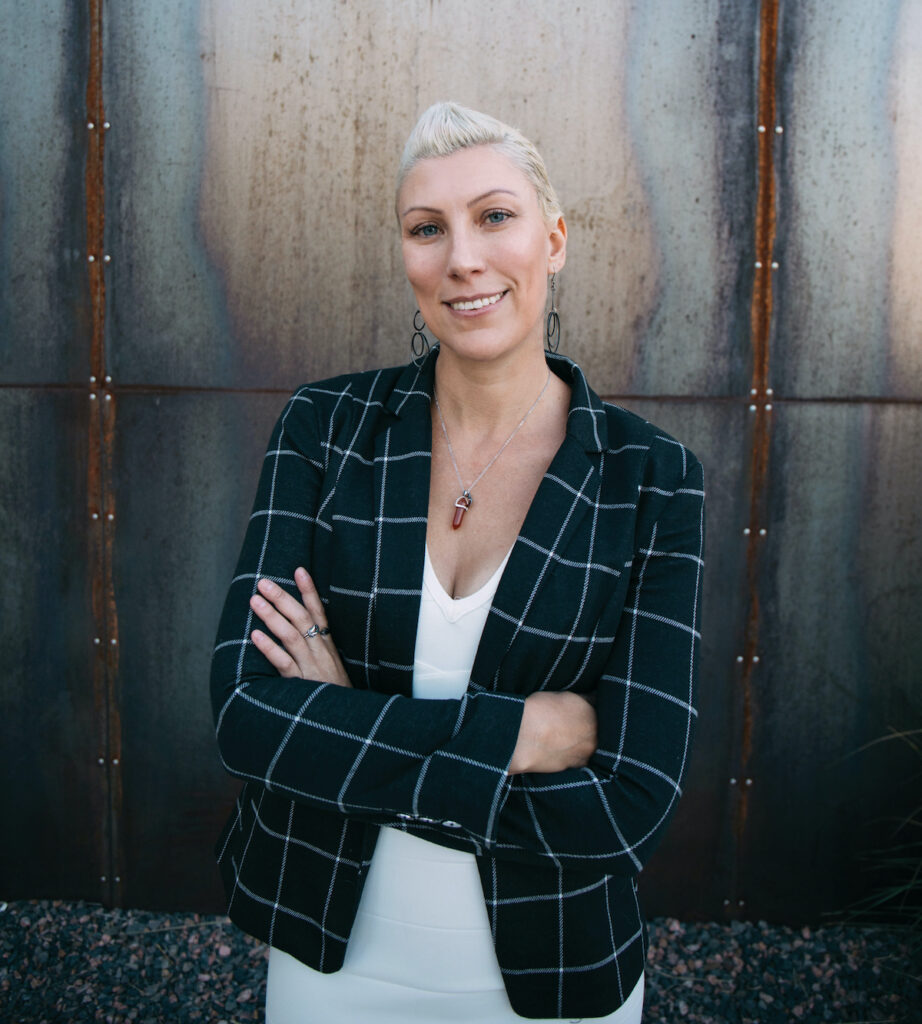
Kim Stuck was a member of the City of Denver’s Public Health Investigations team when she recognized a need within the state’s regulatory structure. She also realized if she wanted to get the job done, she’d have to create the job first. “I wrote up my own job description, presented it to the department head, and she said, ‘Okay, you get to be our cannabis specialist,’” Stuck said. But compassion allowed Denver’s resident “weed whacker,” notorious for conducting thousands of product recalls and disposals, to be the villain for only so long before she switched sides. In 2017, she launched the state’s first regulatory consulting agency. “My entire company is female, and I hire a lot of women,” she said. “Why? Because it takes a lot of empathy to do what we do. We’re essentially telling people their babies are ugly all day. In order to operate successfully, compassion has to come first.”
Kate Miller
Co-founder and CEO, Miss Grass
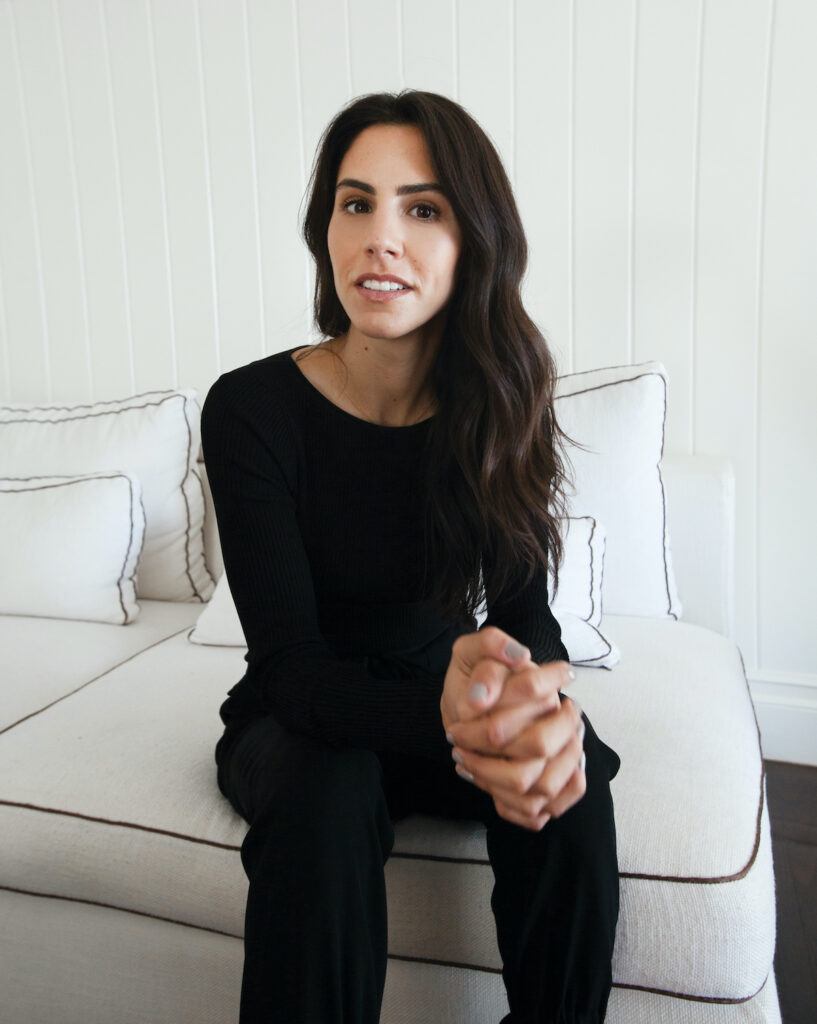
Kate Miller has never been as conscious of her gender as since launching Miss Grass. “I’m no longer just a founder; I’m a female founder,” she said, admitting she recognizes pros and cons accompany the distinction. “Humans have inherent biases, and we tend to resonate with things we understand and know intimately,” she continued. “Given that the majority of almost all industries’ decision-makers of capital and partnerships are men, I feel women have a harder battle to fight when building a business.” At the same time, Miller has found her gender beneficial for growth. “Women are the fastest-growing consumer demographic across all legal cannabis markets, and because my team is part of this community and intimately familiar with our own needs, we’re better positioned than most to lead as a brand.”
Kim Prince
Founder and CEO, Proven Media
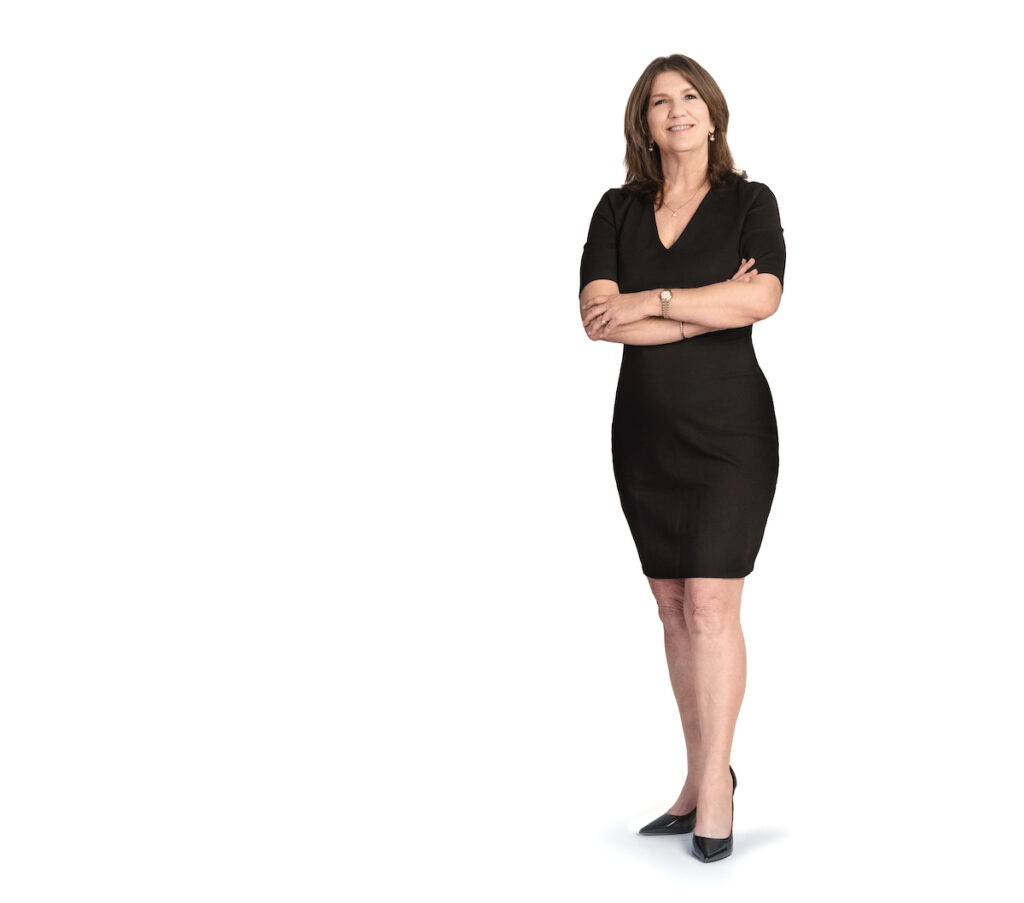
Kim Prince’s passion for business led her to the cannabis space, where she found room to exercise more than twenty years of corporate communication skills in a fresh, emerging industry. During her ten-year tenure in this industry, Prince has borne witness to the challenges women face, but she remains a firm believer that working hard can help anyone rise through the ranks, regardless of gender. “For me, it’s not just about ‘girl power’—it’s about power. Bringing together executives who are male, female, and everything in between to align on integrity, positive attitude, and forward thinking is imperative,” she said. “Whether you’re a man or a woman, this industry can be really challenging. However, I think it’s less about gender and more about the content of our character. We’re all born with unique sets of obstacles, but I remain determined to never let any obstacle get in my way.”
Durée Mellion Ross
Founder and president, Durée & Company
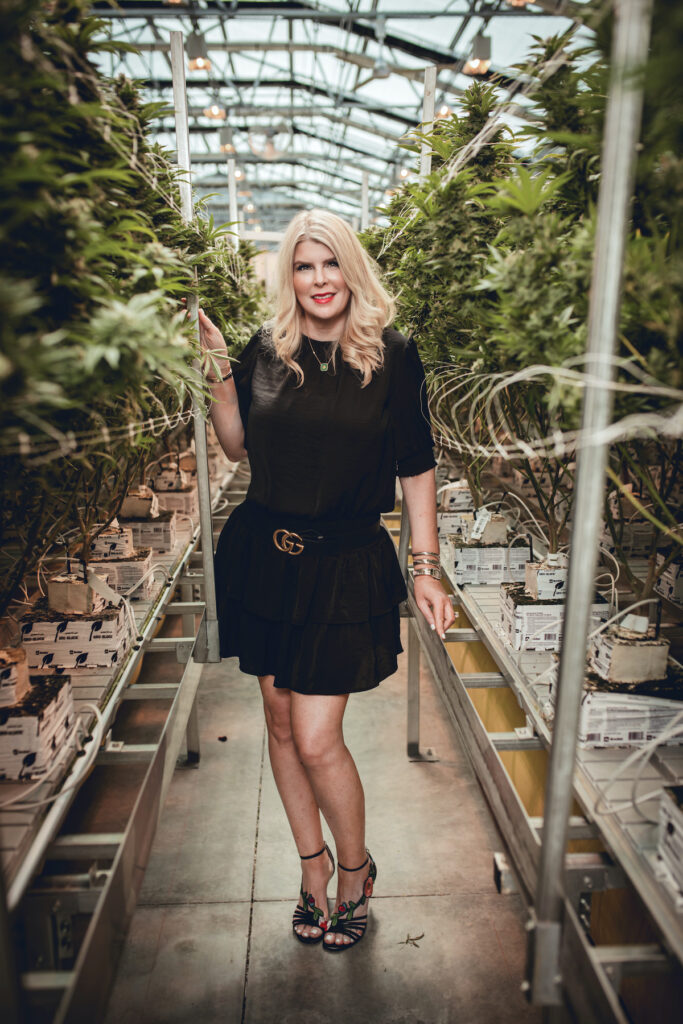
Durée Mellion Ross founded her public relations firm at age twenty-four and is proud of her stubborn insistence on succeeding without “selling out [her] femininity.” As she recalled, “When I first started out, I was nervous. Would anyone want to do business with someone who has a pink logo? But once I got more secure in my business and what we were doing, I felt that if someone didn’t understand our branding, they might not be the right fit for us.” Ross has never faced issues finding a seat at her own table, and she’s determined to empower other women and minorities with an opportunity to get ahead in the industry, too. “Being a working mom in cannabis, I’ve had many conversations with my kids about the plant. That’s such an important part of what we do,” she said. But she’s equally committed to helping other women thrive. “Whether it’s a daughter, aunt, colleague, or sister, it’s our job to educate ourselves and lift everyone up together.”
Wendy Bronfein
Co-founder, chief brand officer, and director of public policy, Curio Wellness
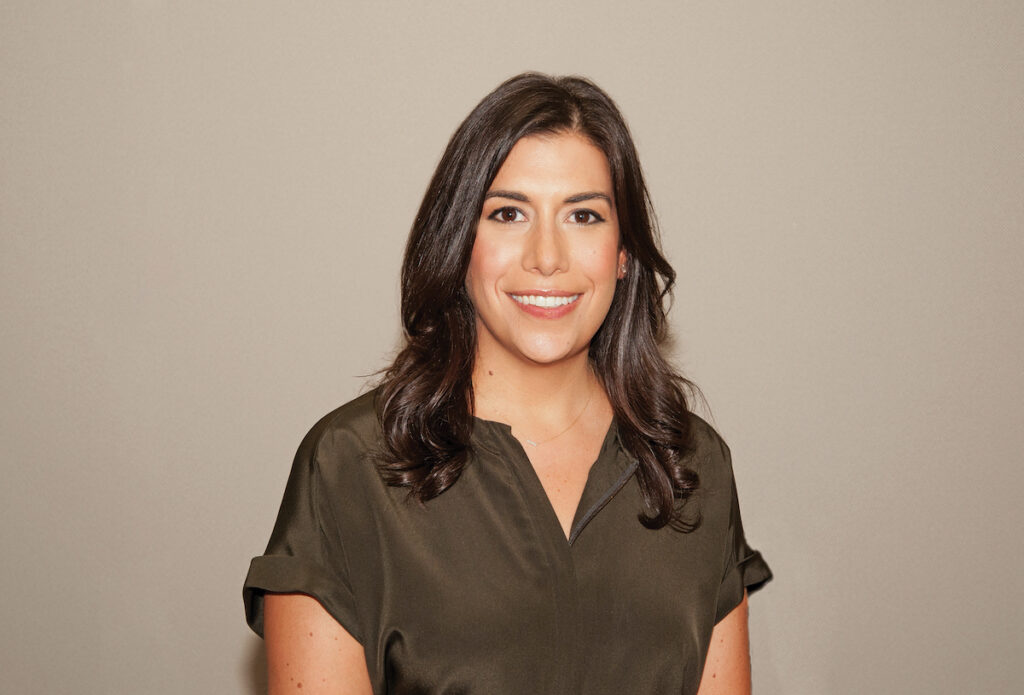
Wendy Bronfein does a lot of work on the federal level, consistently advocating for programs that help increase economic equality so women and minority operators have more opportunities to achieve success. “We all experience cannabis from our own bubble, and in the state of Maryland, there have been a lot of women at the table from the beginning,” she said. “I don’t feel that it’s been tarnished by male domination. Legal cannabis is still new, so nothing is set and established as a ‘man’s game.’” In fact, Bronfein believes the industry is a natural fit for women, partially because brands create much of their trajectory through word of mouth and—though it may seem stereotypical—women are more prone than men to recommend products they use and like. “Women are making the healthcare decisions in the household and doing more of the household shopping,” she said. “We’re very connected to being arbiters of taste and quality.”
Shawna Seldon McGregor
Founder, Maverick Public Relations
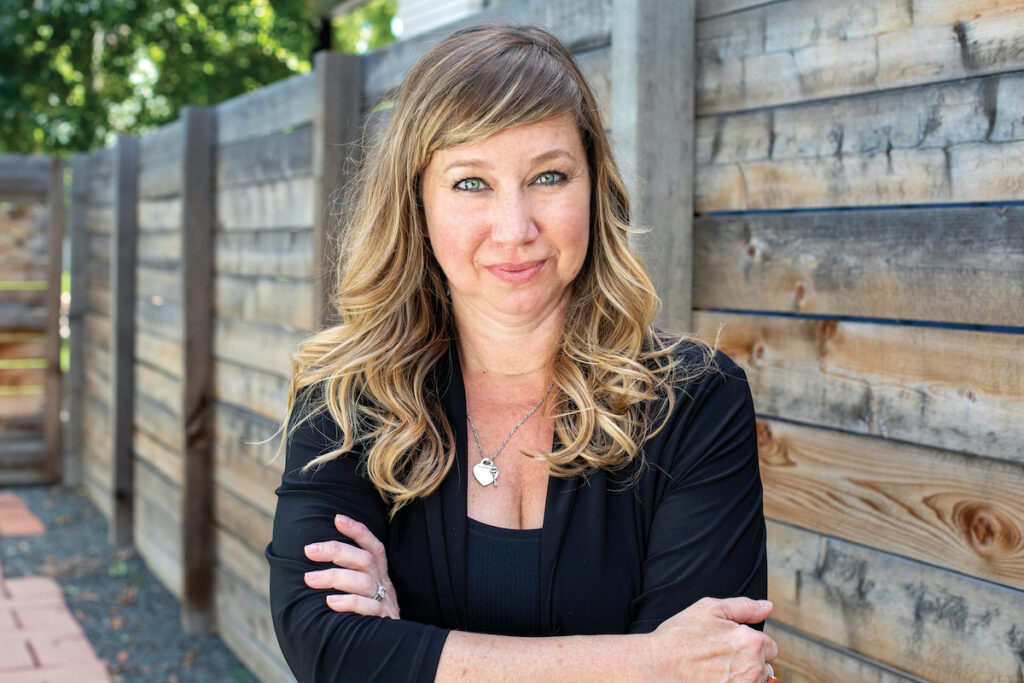
Shawna Seldon McGregor launched her industry career in Denver in 2014. At the time, Colorado was way ahead of the legalization curve, having launched the first adult-use market in the country. During the heady first months, she was surrounded by a collaborative group of women entrepreneurs, including Nancy Whiteman of Wana Brands. “We called it ‘the co-opetition,’” she said. “We got together and talked about what was coming down the pipeline, what each woman was seeing or noticing in her endeavors, what we were predicting for the industry’s future.” Those early relationships continue to thrive, McGregor said, and the group continues to support other women. “There are certainly challenges, considering female founders receive 2 percent of funding with their male counterparts receiving the other 98 percent,” she said, “but women have been leaders in the regulated cannabis industry since day one. I work alongside this amazing team of women, young and maturing alike, and they will be phenomenal leaders if we all work together to create opportunities.”
Degelis Pilla and Kymberly Byrnes
Co-founders, TribeTokes
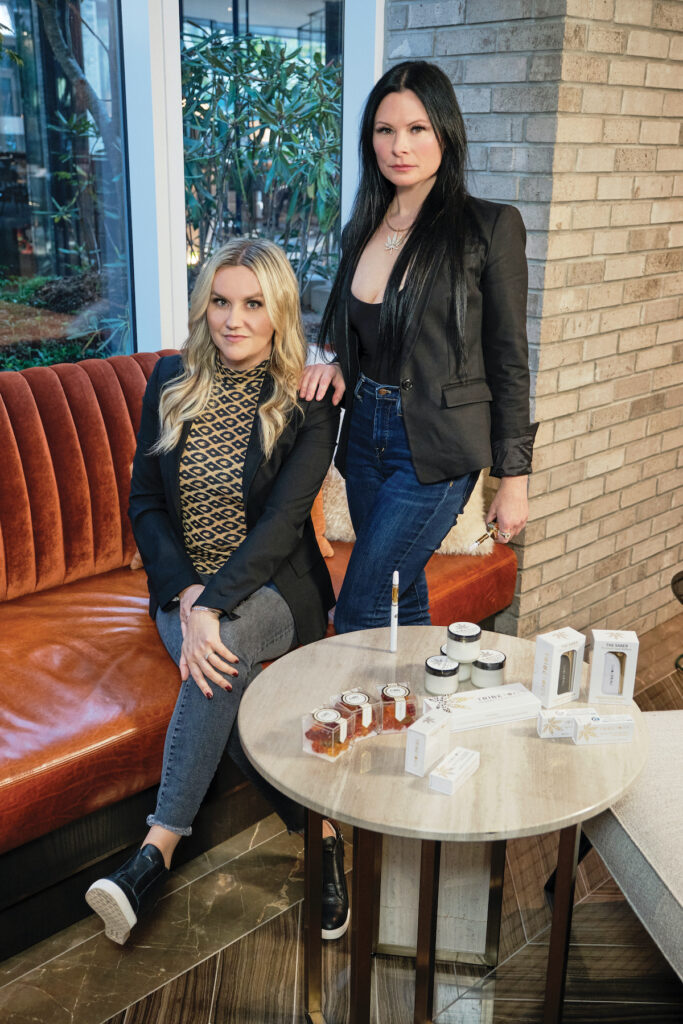
Kymberly Byrnes and Degelis Pilla are almost as well-known for self-funding TribeTokes as for their outspoken advocacy for the plant and female entrepreneurship. “At some point, I realized other women in the industry were looking up to us for inspiration as a group that has survived several storms without taking any funding from men in suits or sacrificing our quality or values,” Pilla said. Byrnes pulls no punches when she discusses her philosophy. “I think the best thing we can do is continue to operate with integrity,” she said. “There’s a real balance we have to strike as women in the workplace, but I’m the first one to tell people to go fuck themselves. I prioritize peace and pick and choose my battles, but we have to disrupt and make it well known that we’re here to stay, and we won’t sit silently. I’m not here to watch my Ps and Qs. I’m here to lead the resistance.”










[…] this, we looked at our leadership team. It was 100-percent White and 70-percent male. Now, it’s 70-percent female and 70-percent White. So we have made some very significant shifts internally among our leadership […]